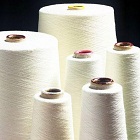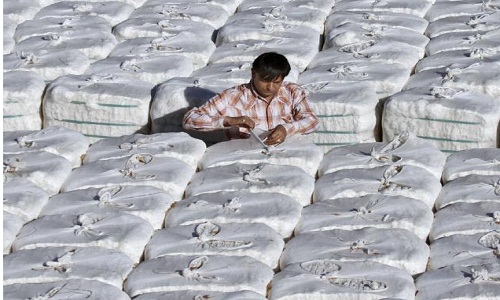"If you are offering good quality product at a reasonable price, then nothing can beat you in business. That has been proved by Kikani Exports time and again. Exporting yarns to Chinese companies for last 12 years, the company has understood the pulse of its customers well. Agreeing with the fact that exporting yarn to China is both a massive opportunity and a tremendous challenge, the company has been reaping fruits of hard work. Vrajesh Kikani, MD, Kikani Exports, says “The biggest difference between China and other export markets is the volume of business available."

If you are offering good quality product at a reasonable price, then nothing can beat you in business. That has been proved by Kikani Exports time and again. Exporting yarns to Chinese companies for last 12 years, the company has understood the pulse of its customers well. Agreeing with the fact that exporting yarn to China is both a massive opportunity and a tremendous challenge, the company has been reaping fruits of hard work. Vrajesh Kikani, MD, Kikani Exports, says “The biggest difference between China and other export markets is the volume of business available. In China, the volumes are huge. The company started exporting to China in 2004, with about 60 tonne per month. That increased over time to as much as 4,000 tonne per month by 2014 but in the past year, the market, owing to cautious market conditions, the volume has gone down to a level of around 2,000 tonne.”

Amid this volatility, China remains a crucial customer for Kikani and other suppliers from India, together withBangladesh representing about 60 per cent of total exports in some cases. He thinks the domestic market cannot take the big volume of Indian spinning mills and the industry, especially cotton spinning is an important industry which employs a lot of people. So, Indian companies need to be dependent on China for their growth.
Quality conscious company
Kikani’s experience in yarn trading has given them an upper hand in the competitive Chinese market. Quality management top of the list and it begins with sourcing the right yarns at the right price from reliable spinners along with the adoption of latest technology and process control. The company has a fully-equipped testing laboratory, with latest USTER technology for fibre and yarn quality assurance. The company trains staff regularly on the latest upgrades into the machinery to achieve the desired output.
Expansion process
Kikani recently invested in its own spinning mill to extend the options beyond its yarn trading business. The new mill, in Ahmedabad, started in 2015, expanding to 29,376 spindles and 4,320 TFO drums by the end of the year. Attractive incentives from state government helped the investment decision. The company’s in-house yarn production is combined with yarns from known and trusted spinners in India. A special advantage for knitting yarn is Kikani’s focus on Shankar 6, which is said to have the lowest contamination rate of the entire Indian crop – although still high compared with cottons from the USA or Australia.
Contamination is a serious issue and although it is generally ‘expected’ by spinners and their customers, there is a constant and growing need to monitor and control it. Kikani achieves this in its own spinning mill with a combination of latest USTER® JOSSI MAGIC EYE detection in the blow room and USTER® QUANTUM 3 (PP option) clearers on its winders. But contamination remains an inherent problem with Indian cotton, because of the typical farming practices in the cotton fields.
Kikani sells to major trading houses in China, and individual weaving and knitting companies and yarn dyers. Although the Chinese export business is large and important to Kikani, it is not usually as lucrative as sales in the domestic market, where prices are generally higher. However, the China trade offers greater volumes, and is mainly financed through letters of credit (LCs), which provides quicker payments compared to locally-negotiated deals with Indian customers.
Tough ride ahead…
Going ahead, Kikani expects market conditions to be more volatile, thereby majorly impacting business with China. Also because of increasing competition from Vietnam and other countries, the company feels it may be a dampener for Indian companies. Hence, unless Indian suppliers are extremely competitive, yarn sales to China will be an even greater challenge in the days to come.












